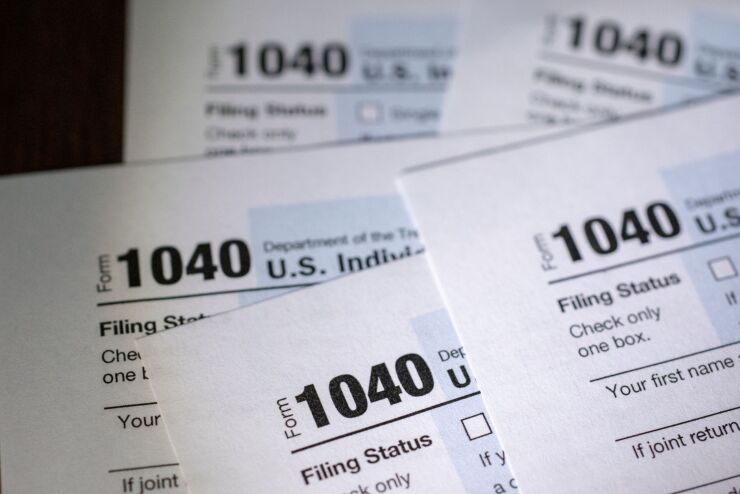Many independent wealth advisors who practice what they preach — a holistic view of financial planning through all stages of life — can boost their take-home pay almost automatically.
That’s because the tax code contains two deductions that can add up to tens of thousands of dollars in “extra” money each year. The two benefits are a boon to advisors confronting lower income this year as Wall Street’s stock market slide cuts into the fees they charge clients based on their assets.
“Anyone who is in an AUM structure is probably going to see their revenue drop this year, so anything to help reduce their taxes is certainly going to help,” said Amit Chopra, the founder of Forefront Wealth Planning & Asset Management in Ramsey, New Jersey. Charging fees for assets managed is the dominant model for the more than
The first tax benefit is a 20% deduction on business income. Available to independent and self-employed business owners, it reduces overall taxable income by one-fifth. While it phases out at certain income levels for wealth managers, financial planners and brokers, along with doctors, lawyers, accountants, consultants and other workers in service professions, the threshold at which it goes disappears is high enough not to snare most advisors.
“It’s a significant deduction,” said Scott Beaudin, the founder of Pathway Financial Advisors, an RIA in Burlington, Vermont, and, a certified financial planner and accountant. “I would hope most advisors know about it.”
The full 20% break, known as the
The deduction is a boon for owners of restaurants, retail shops and other small businesses at the heart of the American economy. Advisors and brokers who are salaried employees at Wall Street or regional brokerages, including those that also operate at independent advisory firms, aren’t eligible for the perk. That gives advisors who have ditched the W-2 life and restrictions of wirehouses to strike out independently and work for themselves, even when allied with a large broker-dealer, an advantage.
Take a senior wealth advisor who makes an annual $238,000, the industry average in 2020, according to a Schwab Advisor Services report in February 2022. She’s in the 35% tax bracket and can shave $47,600 (20%) off her taxable income, a tax savings of $9,520. What’s more, the savings push her income into the lower 32% bracket.
More than one advisor in an independent practice? Each can take their pro rata share of the firm’s total income and claim the deduction on it. The benefit is for what the IRS called qualified business income, meaning income from running a business. It doesn’t include income from investments or wages.
Chris Bowman, a partner at Professional Wealth Advisors in Downers Grove, Illinois, a registered investment advisor firm (RIA) that’s affiliated with broker-dealer LPL Financial, said that far from all eligible advisors were clued in to the deduction.
“It depends on how tax-aware the advisor is,” he said. “If they’re just a wealth manager, as opposed to a holistic financial planner, then maybe not.” said Bowman, who took the benefit last year. “I have a good accountant.”
But even advisors who tackle all aspects of wealth planning, from college and homebuying to retirement and estate planning, can have blind spots.
“Some advisors have an ego and think that because they’re a CFP and have some basic tax knowledge, they can do their taxes themselves,” said Chopra. “I feel like advisors fall into two categories: ‘well-versed in everything but miss things like this, and advisors who use accountants.”
The deduction can be particularly valuable this year if the stock market, now down roughly 20% from its January record, doesn’t rebound. That’s because most independent advisors charge a fee — typically around 1% — based on the value of the client assets they oversee. On average, fees based on assets under management (AUM) make up 70% of compensation for all of an advisor’s compensation,
The second big tax benefit for independent advisors is the
Unless an employed spouse is on company-sponsored health insurance, working for oneself means ponying up for coverage, typically a significant cost. Average annual premiums last year were $7,739 for a single person and $22,221 for a family,
Beaudin said it was common for business owners, not just independent advisors, to overlook that deduction: “I’ve seen people miss a $10,000-$30,000 deduction—sometimes $40,000.”








